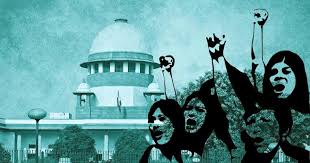Shilpi Nama
On April 15, 2025, the Supreme Court of India dismissed a Public Interest Litigation (PIL) that sought to mandate a preliminary investigation before the filing of cases under Section 498A of the Indian Penal Code, 1860 (IPC) and the Protection of Women from Domestic Violence Act, 2005 (DV Act). The petition argued that such a probe would prevent the misuse of these provisions, which are often alleged to be weaponized in matrimonial disputes.In December 2024, the Supreme Court criticized the growing tendency to use Section 498A as a tool for personal vendetta against the husband and his family. The court observed that if vague and generalized allegations made during marital disputes are not examined closely, they could result in the abuse of legal processes and promote coercive tactics from a wife and her relatives.
In the current petition challenging the provision on the grounds of “suspected misuse and prejudice”, the bench made up of Hon’ble Justices Surya Kant and N. Kotiswar Singh contended that it unjustly prevents men from claiming protection in comparable situations. The Court rejected the plea, stating that it was completely misguided and ill-conceived to claim that Section 498A IPC violated Article 14 of the Constitution. The ability to pass a special law for the protection of women, etc., is expressly granted under Article 15. This usage must be investigated on an individual basis. The courts also emphasized Section 498A’s “salutary intent,” which is to shield women from harmful and repressive social practices. They reaffirmed that courts have the authority to consider misuse claims on an individual basis.
While the Supreme Court has acknowledged concerns about the potential misuse of these legal provisions, it has consistently maintained that any reforms or procedural changes should be pursued through legislative channels rather than judicial intervention. The dismissal of this PIL reinforces the principle that the judiciary’s role is to interpret and apply the law, while the responsibility for enacting or amending laws rests with the legislature. This development underscores the ongoing debate and need for a balanced approach to address the concerns of both parties in matrimonial disputes, ensuring that legal provisions serve their intended purpose without being misused.
Case Number: W.P.(C) No. 000315 / 2025
Case Title: JANSHRUTI (PEOPLE & RSQUO;S VOICE) Versus UNION OF INDIA AND ORS.
Diary No. 2152-2025
Bench: Justice Surya Kant and Justice N. Kotiswar Singh
Instagram: Click here
LinkedIn: Click here
For Collaboration and Business: info.desikaanoon@gmail.com

